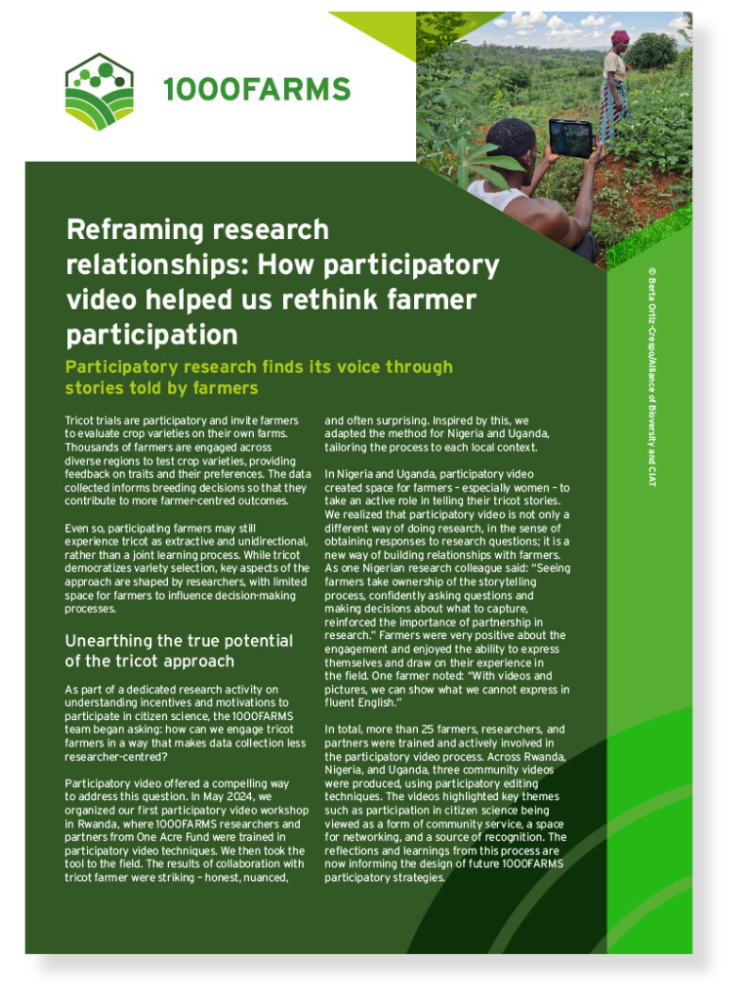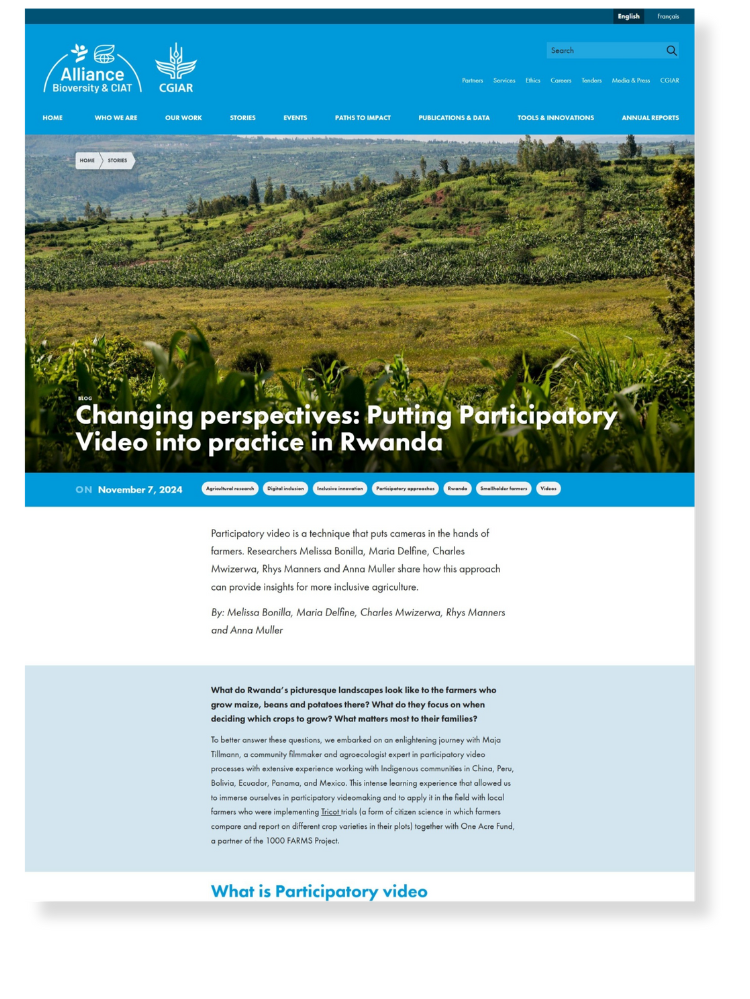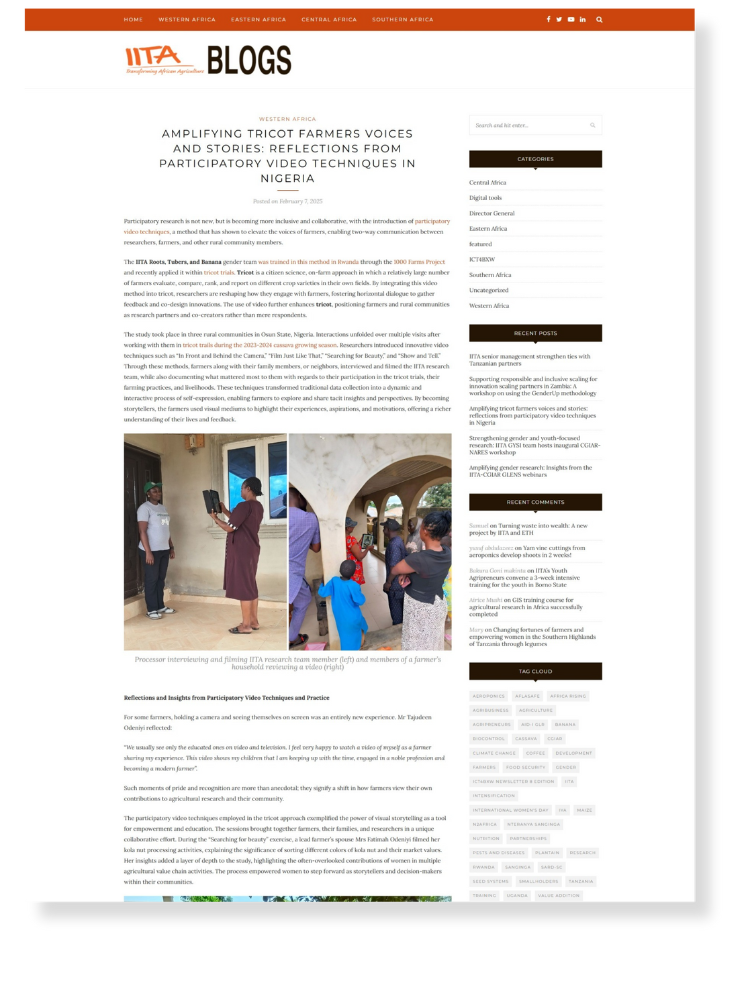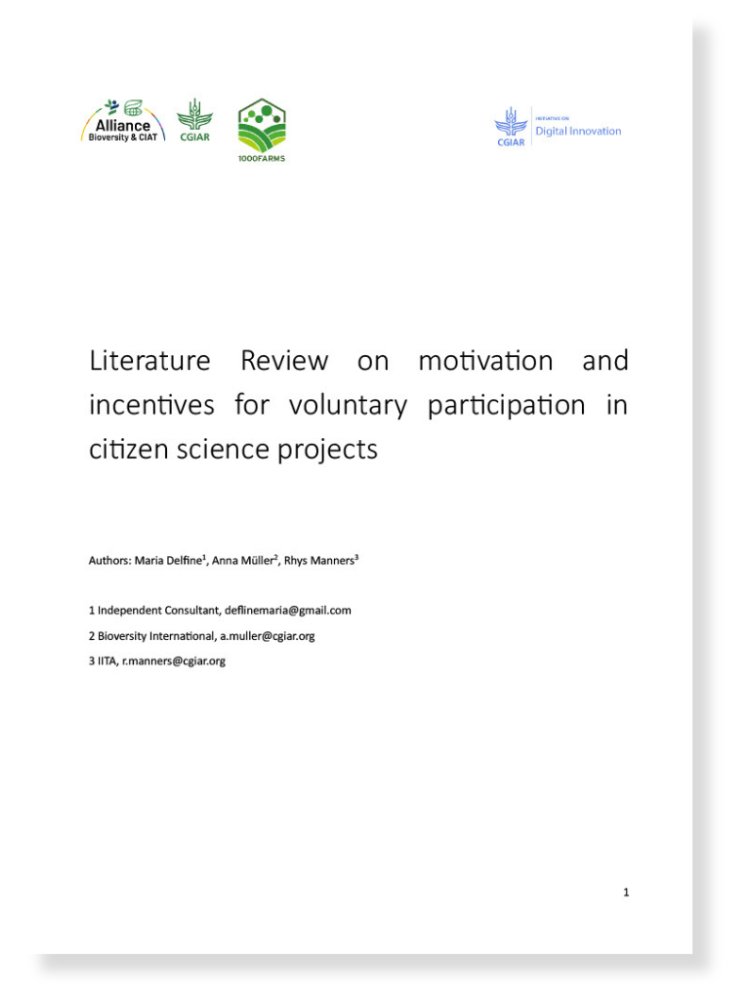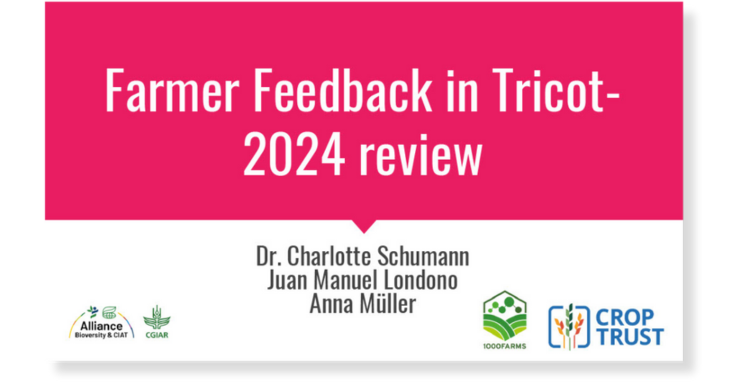This activity focuses on ensuring that tricot on-farm trial (OFT) insights are considered in product advancement and commercialization decisions. To create the optimal conditions for this, standardized summary reports are being used to inform product advancement meetings, variety release and commercialization, and seed marketing investments.
1000FARMS engages with variety release committees through the distribution of unreleased germplasm and information to pave the way for submissions supported by tricot trials. 1000FARMS report formats are being designed with key researchers engaged in the Genetic Innovation Action Area of OneCGIAR, to be incorporated into the ClimMob platform, which will automatically generate reports on demand.
The reports support decision-making and prioritization with standardized information on field performance and farmers’ preferences, paying close attention to climate adaptation and gender.
This activity also engages with NARES and CGIAR actors managing and governing breeding product design and management to promote increased investment in and appropriate standards for OFTs. This includes the initiatives of the OneCGIAR Genetic Innovation Action Area (Breeding, Market Intelligence, Seed Systems), the CGIAR-NARES breeding programs/networks, the BPAT project, national variety release committees and seed companies/traders.
Discover more with these resources
Tricot trials are participatory and invite thousands of farmers to evaluate crop varieties on their own farms, providing feedback on traits and their preferences. The data collected informs breeding decisions so that they contribute to more farmer-centred outcomes. However, participating farmers may still experience tricot as extractive and unidirectional, rather than a joint learning process. The flyer explores the question of how the 1000FARMS team can engage tricot farmers in a way that makes data collection less researcher-centred, and how participatory video offers a compelling answer.
What do Rwanda’s picturesque landscapes look like to the farmers who grow maize, beans and potatoes there? What do they focus on when deciding which crops to grow? What matters most to their families? This blog sets out how participatory video techniques can help find the answers.
Explore how participatory video techniques in Nigeria have transformed traditional data collection into a dynamic and interactive process of self-expression, enabling farmers to explore and share tacit insights and perspectives.
This literature review explores the diverse motivations driving initial and sustained participation in citizen science and highlights the demotivation factors and barriers, such as monotonous tasks and logistical challenges, that hinder participation.
Discover more about our other activity areas
Data collection | Variety performance analysis | ClimMob platform integration | 1000FARMS course | On-farm trial networks

